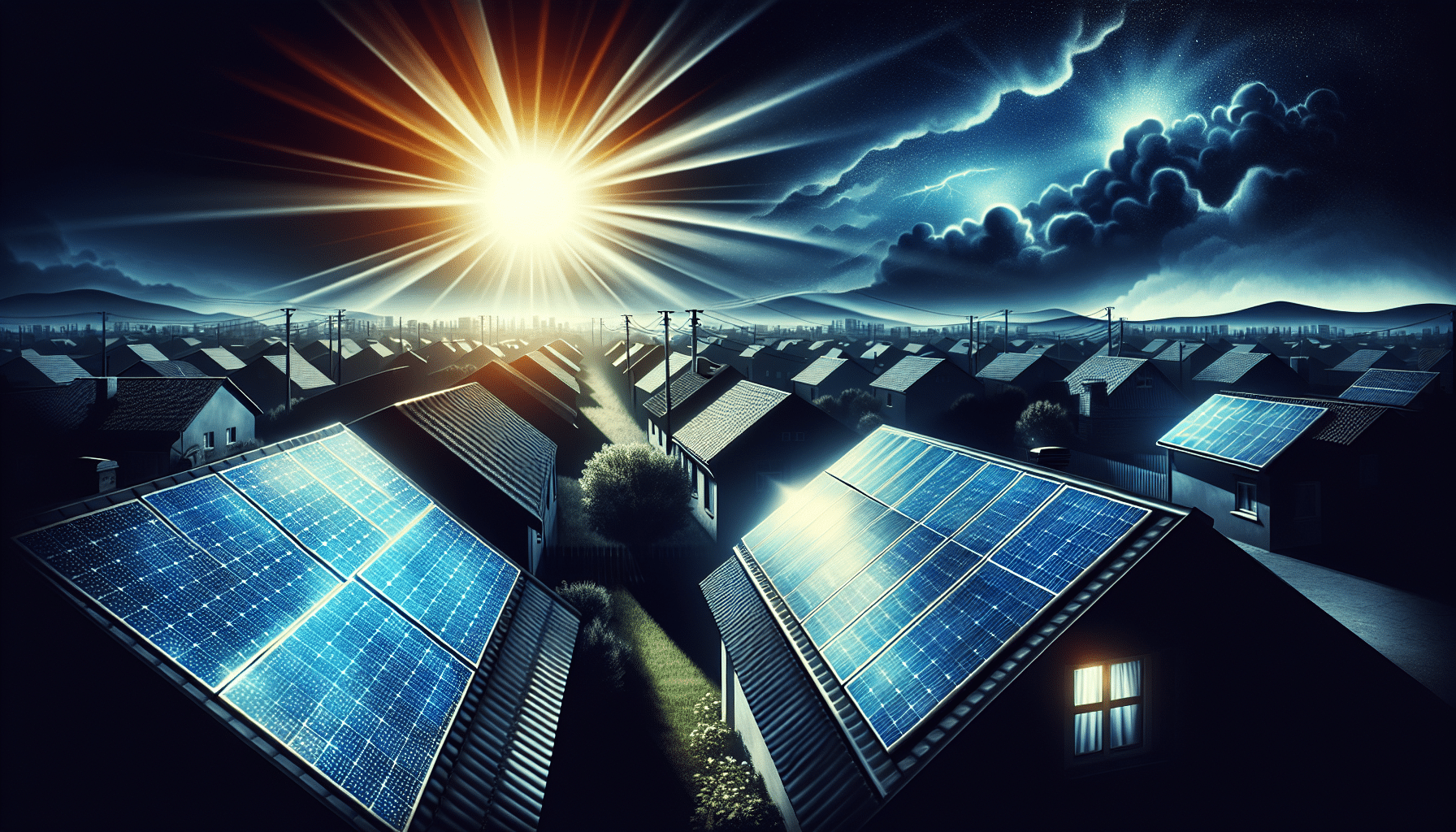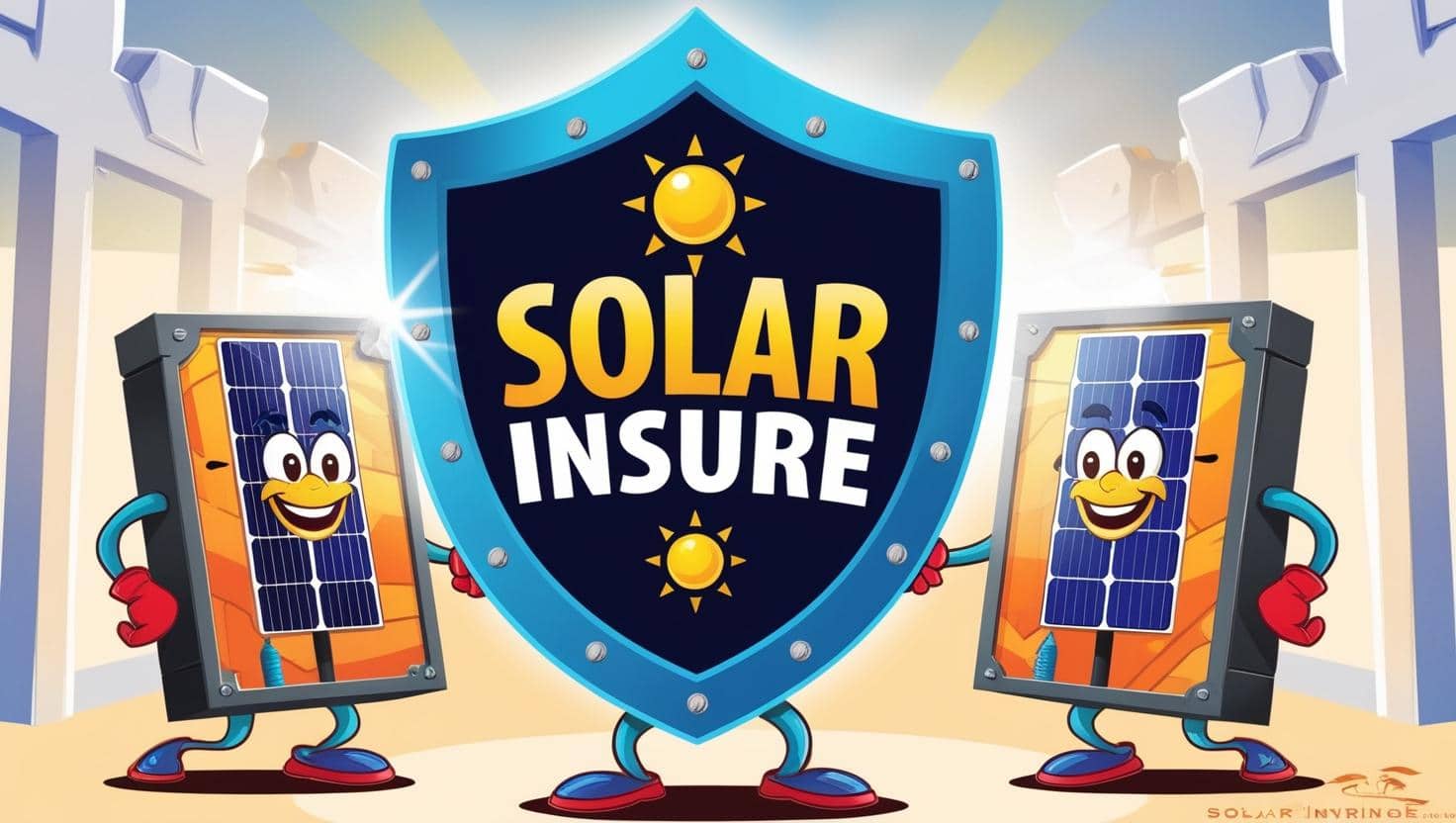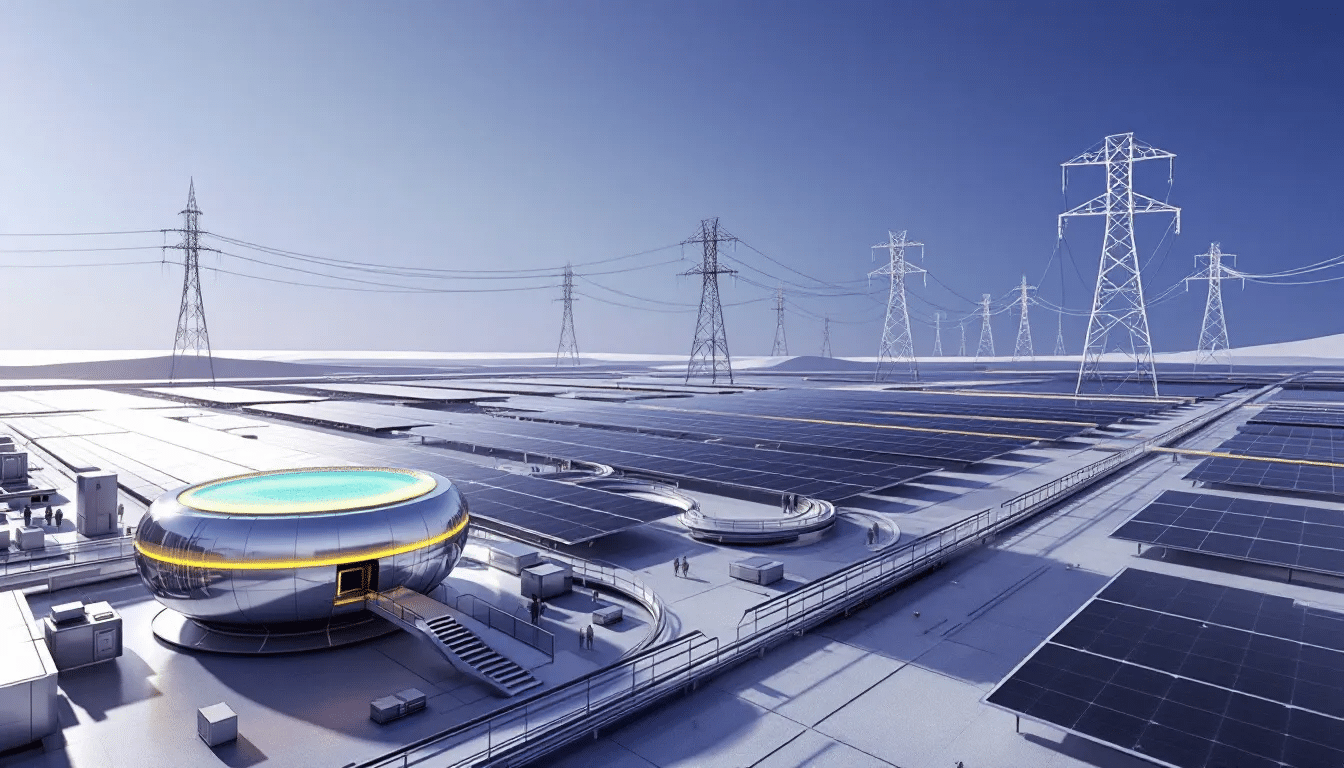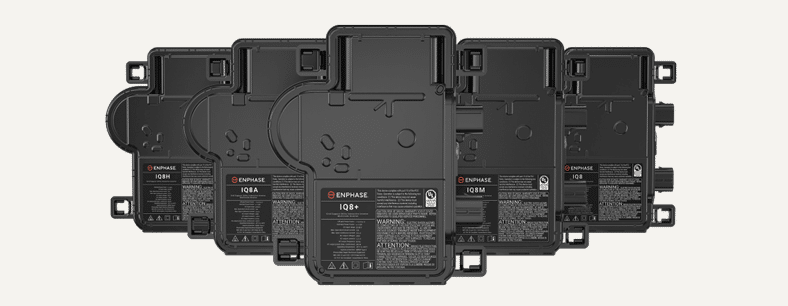Key Takeaways
- Most U.S. solar systems shut down during power outages for safety, necessitating additional equipment like battery storage or off-grid configurations to ensure power availability.
- Homeowners should choose appropriate solar systems, such as battery-backed grid-tied or off-grid options, to maintain energy security during outages.
- Financial incentives like the Federal Investment Tax Credit (ITC) can make solar installations more affordable and economically viable for homeowners.
The frequency of power outages is on the rise, driving a growing interest in solar panels as a potential solution. Solar panels can offer an alternative source of electricity during outages, significantly enhancing energy security for homeowners. However, solar panel systems are designed to shut down during power outages for safety reasons, preventing electricity from back-feeding into the grid.
Although solar panels generate electricity from sunlight, their usability during outages depends on the type of solar system installed. Homeowners without a battery backup system connected to the grid cannot use solar energy during power outages, as the system shuts down for safety. This highlights the need for additional components and careful planning for a continuous power supply during outages.
Understanding Solar Panel Functionality During Power Outages

Understanding how solar panels function during power outages involves recognizing the limitations of most U.S. solar systems. Typically, grid-tied systems are designed to shut down during outages for safety reasons. This automatic shutdown prevents electricity from backfeeding into the grid, protecting utility workers and maintaining grid integrity.
This shutdown means homes without proper backup solutions cannot harness solar energy during power outage. Systems need battery storage or off-grid configuration to use solar energy during outages.
Innovative solar technologies, including battery systems and advanced inverters, are making it possible for homeowners to achieve energy independence during outages.
Safety Regulations and Utility Worker Protection
Grid-tied solar systems automatically shut down when the grid fails to protect utility workers from potential electrocution. This safety measure is crucial, as it prevents backfeed electricity from harming utility workers repairing the grid.
Utility regulations mandate this shutdown to ensure the safety of emergency workers and grid integrity.
Grid Frequency Dependence
Grid-tied solar systems rely on a stable grid frequency and cannot operate independently during outages. They require a consistent frequency of 60Hz or 50Hz to generate electricity. When the grid goes down, a grid tied solar system shuts down because they cannot produce their own frequency, underscoring the need for alternative solutions to ensure power continuity.
Solutions for Using Solar Panels During Power Outages

Solar systems need battery backup to store generated solar energy and maintain power during outages. Installing solar battery backup systems allows homes to receive power during blackouts. Batteries store excess energy generated by solar panels during the day for use at night or during outages.
Another critical component is the solar inverter, which disconnects the home from the grid and ensures power continuity during blackouts. Maintaining power during outages with solar energy can be achieved through backup gas generators, solar batteries, and special solar inverters.
Solar storage systems are a favored choice for ensuring power during outages with a solar power system.
Battery Backup Systems
Without battery storage, solar power generated during an outage goes unused. Battery systems ensure a continuous power supply during outages and provide peace of mind. Common battery storage options include lithium-ion and lead-acid batteries.
These systems seamlessly switch from grid power to battery backup during outages, ensuring uninterrupted power supply.
Special Inverter Systems
Special inverter systems enable solar panels to function without a grid connection during blackouts. These advanced inverters maintain electricity supply when the grid is down, providing energy independence during outages.
Microinverters, such as those from Enphase, enhance system reliability and allow flexible integration with various roof sizes.
Choosing the Right Solar System for Your Home

Selecting the right solar system involves understanding the need for backup solutions to ensure power availability during outages. Local laws and grid interconnection rules significantly influence the performance of backup solar systems. These regulations also impact the safety of these systems. An energy backup system with storage is necessary to ensure that solar panels provide power during outages.
Off-grid solar systems operate independently of the grid, making them unaffected by power outages and offering true energy resilience. A battery-based solar system is the most effective option for those seeking continuous energy supply. Technologies like energy management systems and microinverters enable solar panels to function without the grid, ensuring essential loads are met during outages.
Off-Grid Solar Systems
Off-grid solar systems offer energy independence during power outages. This independence frees homeowners from utility price fluctuations and ensures continuous power supply. However, off-grid systems are more expensive than grid-tied systems and require careful planning to ensure sufficient energy during prolonged cloudy periods. Despite these challenges, off-grid solar systems are a wise investment for remote buildings without grid access.
These systems use stored energy from batteries to generate power at night or during outages. A key consideration is ensuring off-grid batteries can provide energy for at least three days of cloudy and snowy weather. This capability underscores the importance of careful planning and investment in high-capacity batteries for off-grid solar systems.
Battery-Backed Grid-Tied Systems
Battery-backed grid-tied systems are highly recommended for suburban areas to enhance resilience during outages. These systems combine the benefits of grid-tied solar with the reliability of battery backup, ensuring homes remain powered even when the grid goes down.
This setup offers a balanced approach to achieving energy independence and resilience.
Selecting the Best Battery Storage Solution
Choosing the best battery storage solution involves considering factors such as capacity, lifespan, efficiency, and maintenance. A solar battery allows homeowners to store energy generated during sunny periods for later use, particularly during outages. The capacity required to meet energy needs during outages is crucial, as it determines how long the battery can provide power.
The average cost of solar batteries ranges from $8,500 to over $10,000, depending on factors like chemistry and capacity. This investment ensures homes have a reliable power source during outages, enhancing energy security and independence.
Autonomy Days and Energy Consumption
Backup energy storage systems should ideally provide 1 to 2 days of autonomy to handle backup power during power outages effectively. For off-grid systems, at least 2 days of autonomy is recommended to ensure continuous power supply during prolonged outages.
A home battery system with a capacity of 10-15 kWh typically suffices to cover essential loads during outages. Understanding autonomy days and average energy consumption is crucial for determining the appropriate battery size for your solar power setup.
Popular Battery Options
Popular battery options for solar energy storage include:
- Tesla Powerwall, a well-known choice favored for its integration with solar systems and reliable performance
- Sonnen batteries, known for their smart technology and efficient operation within solar setups
- LG Chem batteries, which offer a compact design and robust performance, suitable for various solar applications
The approximate cost of a 9.8 kWh solar battery, like the Tesla Powerwall, can be around $15,000.
Financial Considerations and Benefits
Investing in solar panels can lead to substantial long-term returns, especially with battery backup systems. These investments protect homeowners from rising energy costs and offer a hedge against utility price fluctuations.
Solar Renewable Energy Certificates (SRECs) provide additional income for homeowners by allowing them to sell the rights to the renewable energy generated. Some states offer property tax exemptions for solar installations, reducing the overall tax burden.
Combined with incentives and tax breaks, these financial benefits enhance the affordability and economic viability of solar installations.
Cost vs. Benefits Analysis
The initial costs of investing in solar panels can be significant. For example, the SMA Sunny Boy inverter costs about $1,000 more than a standard inverter without backup features. Despite the higher upfront costs, homeowners save substantially on utility bills and gain increased energy independence from solar panel systems.
Battery-based solar systems offset electricity bills, increase solar self-consumption, and offer protection against outages.
Incentives and Rebates
The Federal Investment Tax Credit (ITC) is a significant incentive for solar installations. Homeowners can deduct 30% of the installation costs of solar energy systems, including battery storage, from their federal taxes. This federal investment tax credit is applicable until 2032.
These incentives make solar installations more affordable and attractive for homeowners looking to save money and enhance their energy resilience.
Preparing Your Home for Solar Power Resilience
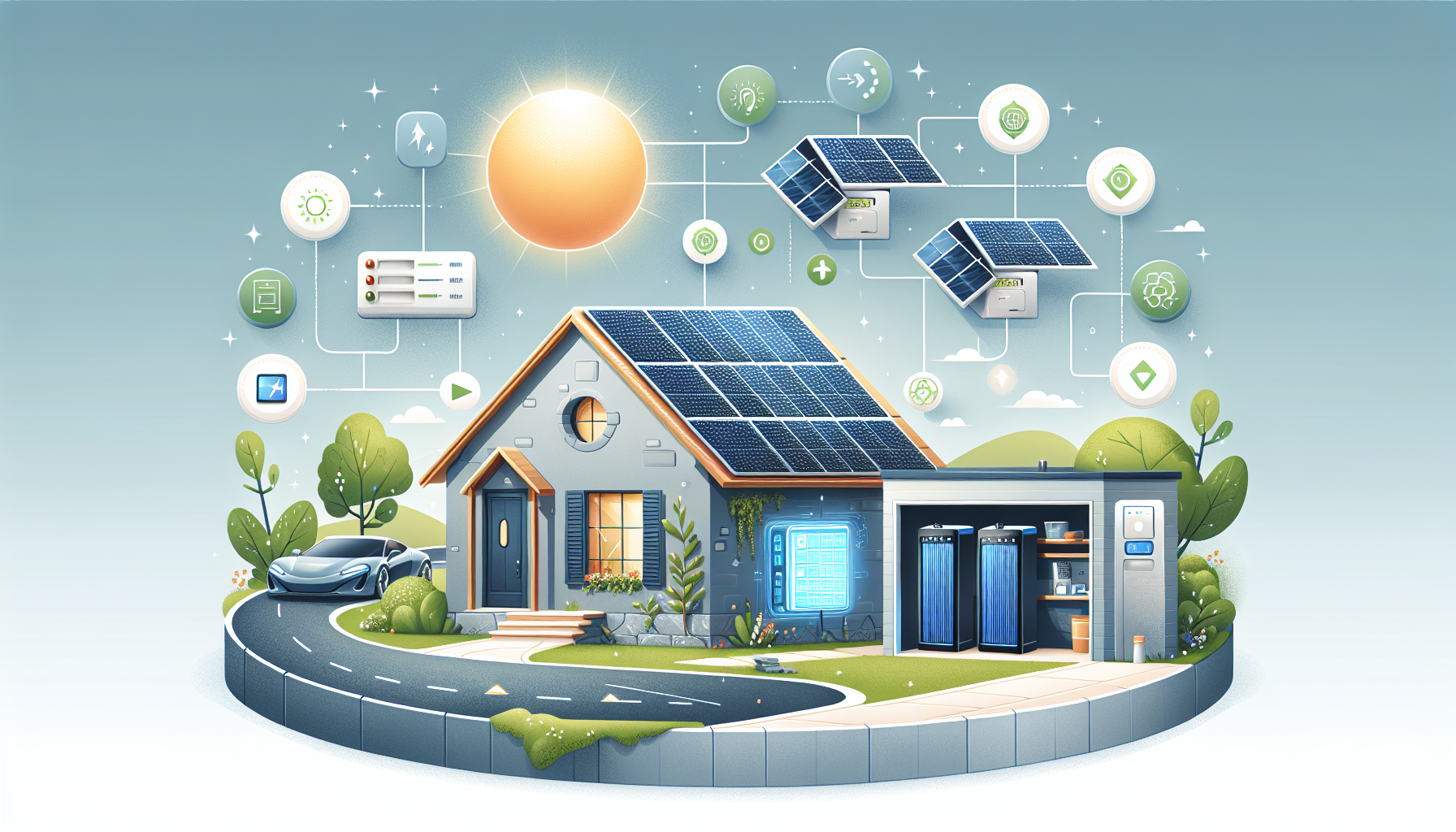
Preparing your home for solar power resilience involves several key steps. An emergency preparedness plan for power outages should include instructions for solar system usage and education on battery storage. Factors to evaluate in a comprehensive system assessment of a solar setup include capacity, efficiency, age, and weak points. Sun Source Energy offers free consultations to assess solar needs for homeowners, ensuring a streamlined installation process.
Professional installation and maintenance of your solar system are crucial for compliance with local regulations and maximizing system efficiency. Automated systems can facilitate a smooth transition between stored energy and grid power during outages, enhancing reliability and energy security.
Professional Installation and Maintenance
Professional installation ensures compliance with local regulations and maximizes system efficiency, as experts, including solar installers, understand local codes and standards. This compliance is crucial for the safety and performance of solar energy systems. Additionally, warranties offered by solar equipment manufacturers may be voided if the installation is not performed by certified professionals.
Therefore, investing in professional installation is a wise decision to safeguard your investment and ensure the longevity of your solar system.
Automating Backup Systems
Automated systems can enhance the reliability of your solar power setup by allowing it to seamlessly switch between grid power and stored energy during outages. These systems ensure that your home remains powered without manual intervention, providing peace of mind during emergencies.
Automated backup systems also optimize energy efficiency by utilizing stored solar energy when grid power is unavailable, thus enhancing energy security and resilience.
Let Sun Source Energy Install Your System
Sun Source Energy is a reputable solar provider and installer based in Nevada, promising a 25-year performance warranty on its solar panels to ensure long-term reliability. We offer personalized assessments and installations aimed at enhancing homes’ energy resilience.
Contact Sun Source Energy today to learn more about how their solar solutions can enhance your home, providing you with energy independence and peace of mind during power outages.
Summary
In conclusion, solar panels represent a promising solution for power outages, but they require careful planning and the right components to be effective. Understanding the functionality of solar panels during outages, investing in battery backup systems, choosing the appropriate solar setup for your home, and preparing your home for solar power resilience are crucial steps.
With the right approach, you can achieve energy independence and ensure a reliable power supply during outages. Embrace the future of energy with solar power and take a step towards a more resilient and sustainable home.
Frequently Asked Questions
Why don’t most solar panels work during power outages?
Most solar panels do not operate during power outages because they are grid-tied systems designed to shut down automatically for safety, protecting utility workers from electrocution.
How can I use solar energy during a power outage?
To effectively utilize solar energy during a power outage, you should invest in a battery backup system or an off-grid solar installation. This ensures that you have stored energy available when the grid goes down.
What are the benefits of a battery-backed solar system?
A battery-backed solar system ensures continuous power during outages and enhances energy independence by increasing solar self-consumption while protecting against rising energy costs.
What incentives are available for installing solar panels?
One significant incentive for installing solar panels is the Federal Investment Tax Credit (ITC), which enables homeowners to deduct 30% of the installation costs from their federal taxes. This benefit promotes the adoption of solar energy systems effectively.
Why is professional installation important for solar panels?
Professional installation is crucial for ensuring compliance with local regulations and maximizing system efficiency, while also safeguarding equipment warranties. This expertise ultimately enhances the performance and longevity of your solar panel system.


